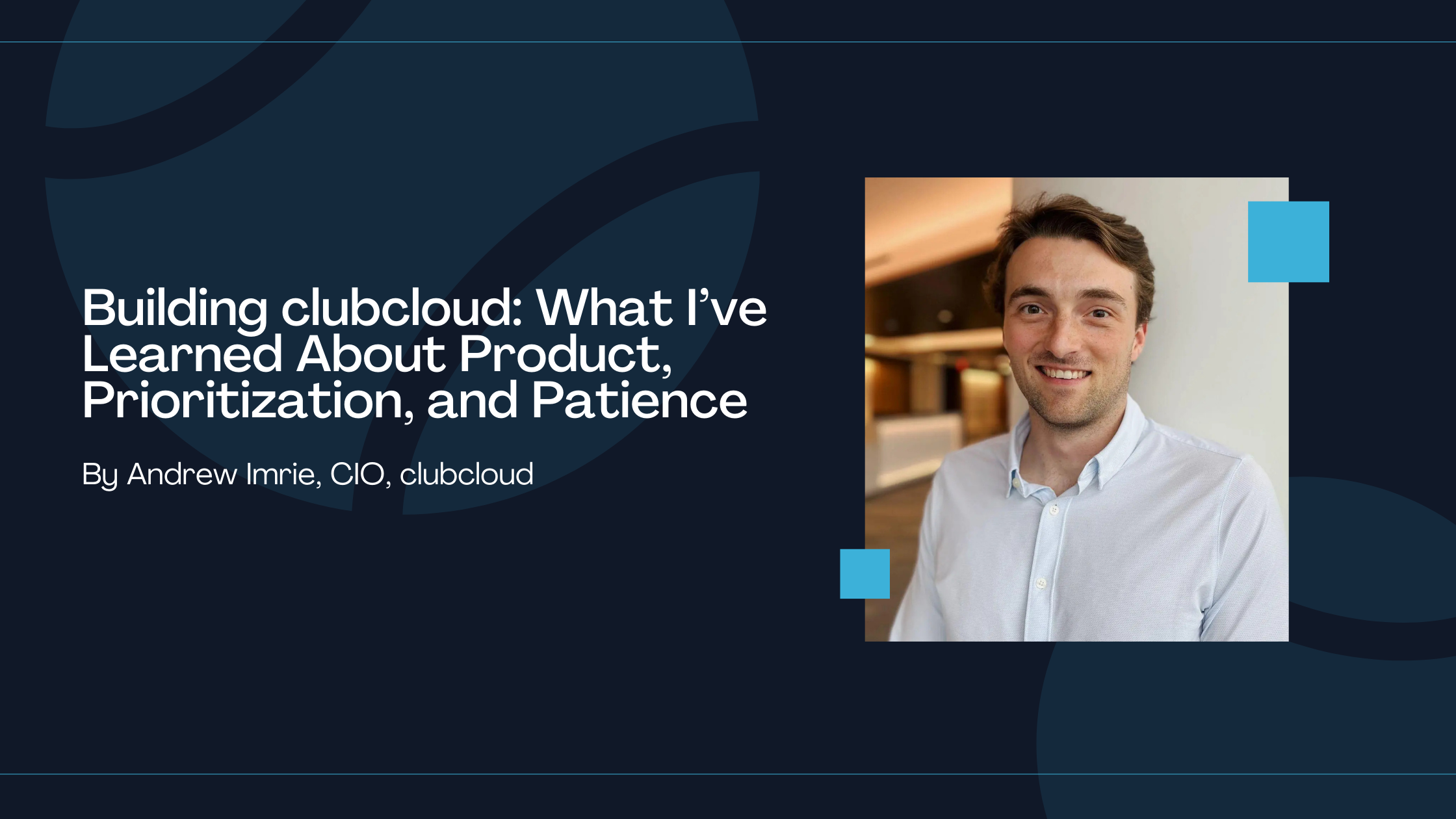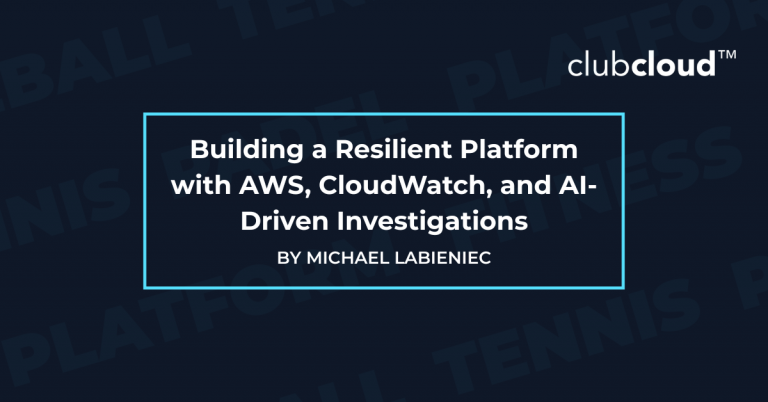20 min
Coming from a software engineering background, I didn’t have much love for project or product management. At big companies, those were the people constantly asking for deadlines, clarifying intent, and sizing the impact of changing a button color. After helping build clubcloud from scratch into a growing platform used widely by clubs and their members, I’ve learned more than I ever expected about what product really means—and what it takes to build one from the ground up.
Product
After spending time working at a large tech company, I had a distorted view of what working “in product” meant. At the enterprise level, where a single mistake can ripple across millions of users, every decision is slow, every release gated by process. That always frustrated me—but I assumed it was just the way things worked.
Then I joined clubcloud.
Here, there’s no bureaucratic release process, no multi-department sign-offs, no finger-pointing postmortems, and no performative “wins” to climb a corporate ladder. Our only focus is making the product better. We’re filling a gap in the industry that club owners feel every day. They don’t need a quarter-by-quarter breakdown for the next two years—they need working software that makes their lives easier.
When everyone on your team genuinely trusts that the others are doing their best and that their best is good enough, everything moves faster. We’ve shipped major features in a week, considering product, design, legal, and engineering along the way—not because we cut corners, but because we don’t waste time. Ironically, the less we focus on “team culture,” the more it emerges on its own. When everyone is aligned on what matters, that alignment becomes your culture.
To me, this is what product is really about: not just managing a backlog, but managing the team’s ability to execute. Creating an environment where everyone can contribute effectively—and removing anything that gets in the way.
Prioritization
When I started clubcloud, I had no experience as a product manager. For over a year, our roadmap lived in a color-coded spreadsheet showing what was in progress, blocked, or urgent. Eventually, we upgraded to proper project management tools—but what never changed was our approach to prioritization.
You can have the world’s cleanest Jira board, with beautiful ticket templates and perfect automation. However, if you can’t tell me what your team is delivering this month, or pivot when something critical comes up, that system isn’t helping you win.
I’d rather know the next five things we’re building than the five biggest ideas you have for next year. Why? Because you’ll always have time to figure out next year. You don’t have time to figure out tomorrow. If shipping one key feature this week could change your company’s sales trajectory, then your roadmap for next year will change anyway—and that’s a good thing.
If you build real-time prioritization into your team’s DNA early, you won’t have to trade it for “maturity” later. In fact, that willingness to respond to real-time feedback becomes your edge. Show me a product manager who’s obsessed with making the right short-term decisions, and I’ll show you someone who’s positioned to take their company far.
Patience
The hardest lesson I’ve learned in this role is that you can’t make things go faster. You’re the middleman—balancing what the business needs with what engineering can deliver. And no, asking “is it done yet?” doesn’t help.
Once you’ve defined the work, aligned priorities, and communicated clearly, all that’s left is patience. But that’s easier said than done.
When you’re a week out from a key delivery and the finish line feels out of reach, it’s tempting to panic. Instead of pouring energy into things you can’t control, ask yourself: how did we get here? Did we misestimate the lift? Miss a key detail in the design? Fail to vet the intent?
Don’t beat yourself up—learn from it. The truth is, if you’re never missing deadlines, you’re probably not pushing hard enough. When you do miss one, especially a self-imposed one, patience becomes your most important tool.
Building clubcloud has been the most challenging and rewarding thing I’ve done in my career. It’s forced me to grow in ways I didn’t anticipate—thinking beyond the code, learning to navigate ambiguity, managing people and personalities, and making high-stakes decisions with limited information. More than anything, it’s taught me that great product work isn’t about having the right tools, the perfect process, or even years of experience. It’s about clarity, adaptability, and trust.
Clarity in what you’re building and why it matters. Adaptability when the plan inevitably changes. Trust—in your team, in the product, and in yourself—that you’re making the best decisions with the information you have.
There were moments where I questioned if we’d ever catch up to the competition. Moments where I felt the weight of every delay, every bug, every feature request we couldn’t yet support. Every time we delivered something that made a club owner’s job easier or gave a member a better experience, it reminded me why we started this in the first place.
Clubcloud isn’t just software—it’s a belief that this industry deserves better tools, built by people who actually understand it. Being part of that mission, helping bring it to life piece by piece, has been one of the most fulfilling journeys I could have asked for.


min






